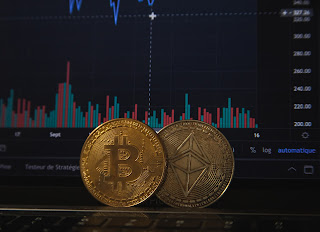A liquidity pool is a publicly supported pool of cryptographic forms of money or tokens secured in a smart contract that is utilized to work with exchanges between the resources on a decentralized trade (DEX). Rather than conventional business sectors of purchasers and vendors, decentralized finance (DeFi) platforms utilize automated market makers (AMMs), which permit digital assets to be exchanged in an automatic and permissionless way using liquidity pools.
Crypto liquidity pools assume a fundamental part in the decentralized finance (DeFi) ecosystem - specifically with regards to decentralized exchanges (DEXs). Liquidity pools are a component by which clients can pool their resources in a DEX's smart contracts to give resource liquidity to brokers to trade between monetary standards. Liquidity pools give truly necessary liquidity, speed, and accommodation to the DeFi ecosystem.
Prior to automated market makers (AMMs) becoming possibly the most important factor, crypto market liquidity was really difficult for DEXs on Ethereum.
Why Are Crypto Liquidity Pools Important?
Any seasoned trader in conventional or crypto markets can enlighten you concerning the possible disadvantages of entering a market with little liquidity. Regardless of whether it's a low cap digital money or penny stock, slippage will be a worry when attempting to enter - or exit - any exchange. Slippage is the contrast between the normal cost of exchange and the cost at which it is executed. Slippage is generally normal during times of higher instability, and can likewise happen when an enormous request is executed yet there isn't sufficient volume at the chosen cost to keep up with the bid-ask spread.
How Do Crypto Liquidity Pools Work?
A functional crypto liquidity pool should be planned in a manner that boosts crypto liquidity suppliers to stake their resources in a pool. That is the reason most liquidity suppliers acquire exchanging expenses and crypto awards from the trades whereupon they pool tokens. At the point when a client supplies a pool with liquidity, the supplier is regularly compensated with liquidity provider (LP) tokens. LP tokens can be significant resources by their own doing and can be utilized all through the DeFi environment in different limits.
Typically, a crypto liquidity supplier gets LP tokens in relation to how much liquidity they have provided to the pool.
Yield Farming and Liquidity Pools.
To make a superior exchanging experience, different protocols offer significantly more motivations for clients to give liquidity by giving more tokens to specific "incentivized" pools. Taking an interest in these boosted liquidity pools as a supplier to get the most extreme measure of LP tokens is called liquidity mining. Liquidity mining is the manner by which crypto trade liquidity suppliers can streamline their LP token income on a specific market or platform.
There are a wide range of DeFi markets, platforms, and boosted pools that permit you to acquire awards for giving and mining liquidity through LP tokens. So how does a crypto liquidity supplier pick where to put their assets? This is the place where yield farming becomes possibly the most important factor. Yield farming is the act of marking or securing cryptographic forms of money inside a blockchain convention to produce tokenized rewards. Yield farming is to stake or secure up tokens different DeFi applications to create tokenized rewards that assist with amplifying income. This permits a crypto trade liquidity supplier to gather significant yields for marginally higher danger as their assets are dispersed to exchanging sets and boosted pools with the most noteworthy exchanging charge and LP token payouts across numerous stages. This sort of liquidity contributing can naturally put a client's assets into the most elevated yielding resource sets. Platforms like Yearn.finance even automate balance hazard decision and gets back to move your assets to different DeFi speculations that give liquidity.









